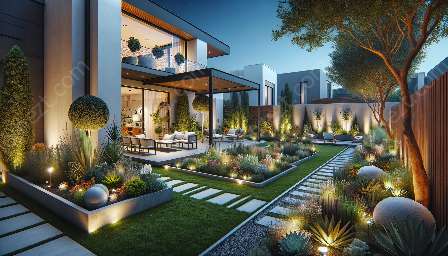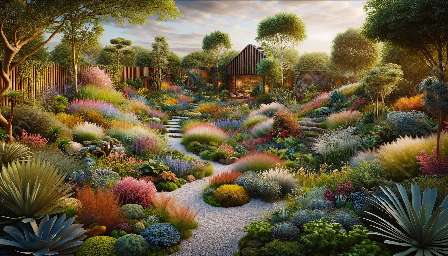As the importance of sustainable living becomes increasingly apparent, more and more people are turning to sustainable gardening as a way to create beautiful outdoor spaces that are both eco-friendly and functional. In this comprehensive guide, we'll explore the principles of sustainable gardening and learn how to integrate them into garden design, yard, and patio ideas.
The Principles of Sustainable Gardening
Sustainable gardening is about creating a harmonious ecosystem that supports the local environment and minimizes the use of non-renewable resources. It involves techniques and practices that promote biodiversity, conserve water, and reduce waste.
- Biodiversity: One of the key principles of sustainable gardening is to create a diverse and balanced ecosystem in your garden. By planting a variety of native plants, you can attract beneficial insects and wildlife, promoting natural pest control and pollination.
- Water Conservation: Sustainable gardening emphasizes the efficient use of water through techniques such as mulching, drip irrigation, and rainwater harvesting. These practices help minimize water waste and reduce the reliance on traditional irrigation systems.
- Soil Health: Building healthy soil is essential for sustainable gardening. By using compost, cover crops, and organic fertilizers, you can improve soil structure, fertility, and microbial activity, creating a thriving environment for plant growth.
- Waste Reduction: Sustainable gardening encourages the use of recycled materials, composting, and reducing the use of synthetic chemicals. By implementing these practices, you can minimize the generation of waste and create a more sustainable garden environment.
Incorporating Sustainable Practices into Garden Design
When designing a sustainable garden, there are several key elements to consider that can help reduce the environmental impact and create a visually appealing outdoor space:
- Native Plants: Utilize native plants in your garden design to support local biodiversity and reduce the need for excessive watering and maintenance.
- Permeable Hardscapes: Incorporate permeable paving materials, such as gravel or permeable pavers, to minimize stormwater runoff and promote groundwater recharge.
- Smart Irrigation: Install water-efficient irrigation systems, such as drip irrigation or rain sensors, to ensure that water is used efficiently and effectively.
- Wildlife Habitats: Designate areas in your garden for creating wildlife habitats, such as birdhouses, bee hotels, or butterfly gardens, to support local wildlife populations.
Sustainable Yard and Patio Ideas
Transforming your yard and patio into sustainable outdoor spaces can enhance the overall look and feel of your home while reducing your environmental impact. Here are some ideas to consider:
- Edible Landscaping: Incorporate edible plants, such as fruit trees, herbs, and vegetables, into your yard and patio design to create a functional and sustainable outdoor living space.
- Rain Gardens: Create rain gardens to capture and absorb rainwater, reducing runoff and improving water quality while adding aesthetic appeal to your yard.
- Energy-Efficient Lighting: Install energy-efficient outdoor lighting, such as solar-powered or LED fixtures, to reduce energy consumption and create an inviting outdoor atmosphere.
- Green Roof or Walls: Consider adding a green roof or vertical gardening structure to your patio or yard, providing insulation, reducing urban heat island effects, and promoting biodiversity.
Conclusion
Embracing sustainable gardening practices not only benefits the environment but also enhances the beauty and functionality of your outdoor spaces. By incorporating sustainable principles into garden design, yard, and patio ideas, you can create a vibrant and eco-friendly outdoor environment that enriches your life while preserving the planet for future generations.




